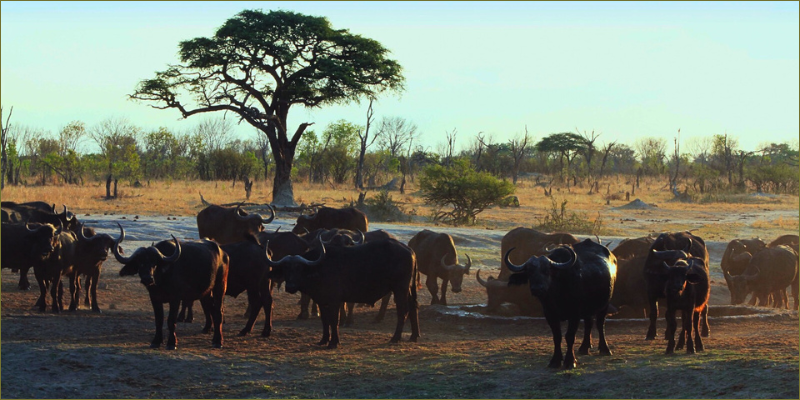Respect the habitat
Oct 02, 2025
When you arrive in Hwange, it doesn’t take long to notice how alive the landscape is. And even on your drive towards Hwange National Park, you often catch the rustling of trees or see animals that blend almost perfectly into their surroundings, moving slowly between them. Everything is part of a delicate balance. That balance though, is easier to upset than many realise. Trash tossed from a car window, a small fire left unattended, or a construction project that spreads just a little too far. These may seem like minor acts, especially if looked at individually, yet they ripple through the land in ways that are anything but small. And this is not unique to Hwange. Across Africa’s great landscapes, wildlife habitats are facing similar pressures. Wildlife spaces everywhere are becoming harder to protect and without constant attention, most of these magnificent spaces are slowly vanishing.
Animals don’t understand the difference between what’s edible and plastic waste. To them, if it smells like food, then they’ll try to eat it. Unfortunately, even the edible foods that are discarded by humans can be harmful or even deadly. Fires are even more devastating. Beyond scorching the earth, they destroy nests, dens and feeding grounds that can take years to return. Construction, mining and other human activities add another challenge. When built without enough thought, they reduce the spaces where elephants can roam, lions can hunt and antelope can graze. In some cases, they even cut off migration routes that animals have relied on for generations. Take the case for elephants, the herds often revisit the same trees every year for generations, and can become frustrated when they suddenly are blocked. For lions, the danger arises when we invade their spaces and introduce our own livestock, which tempt these dangerous cats to stray into human territory.

Then there is poaching, the most deliberate form of destruction. Mostly driven by illegal trade, it leaves not only loss of life but also fractured family groups, orphaned calves and predators left without prey. What disappears in the background of human progress is the very habitat that makes wild places extraordinary. These are the spaces that people travel across the world to see, yet they are the first to suffer when human needs grow unchecked.
This is not to cast blame. Many times, harm is caused without intent by people who simply did not realise how closely everything is connected. But the truth is, places like Hwange are among the last havens where wildlife can still roam free, unconfined by fences or barriers. That freedom is both its gift and its vulnerability. When the land is harmed, the wildlife feels it first. And when wildlife struggles, the spirit of Hwange and other rare places like it, is diminished.
So as travelers, residents and stewards of these landscapes, the responsibility falls to us. Pack out every piece of litter, no matter how small. Take fires seriously and leave no flame unattended. Support development that respects and works with the environment and condemn those that are trying to replace it. Together, little by little, these acts protect something rare…a wilderness that still belongs to the wild.
Hwange is a place that leaves a mark on the soul. Let’s make sure the mark we leave on it is one of respect, not of destruction.